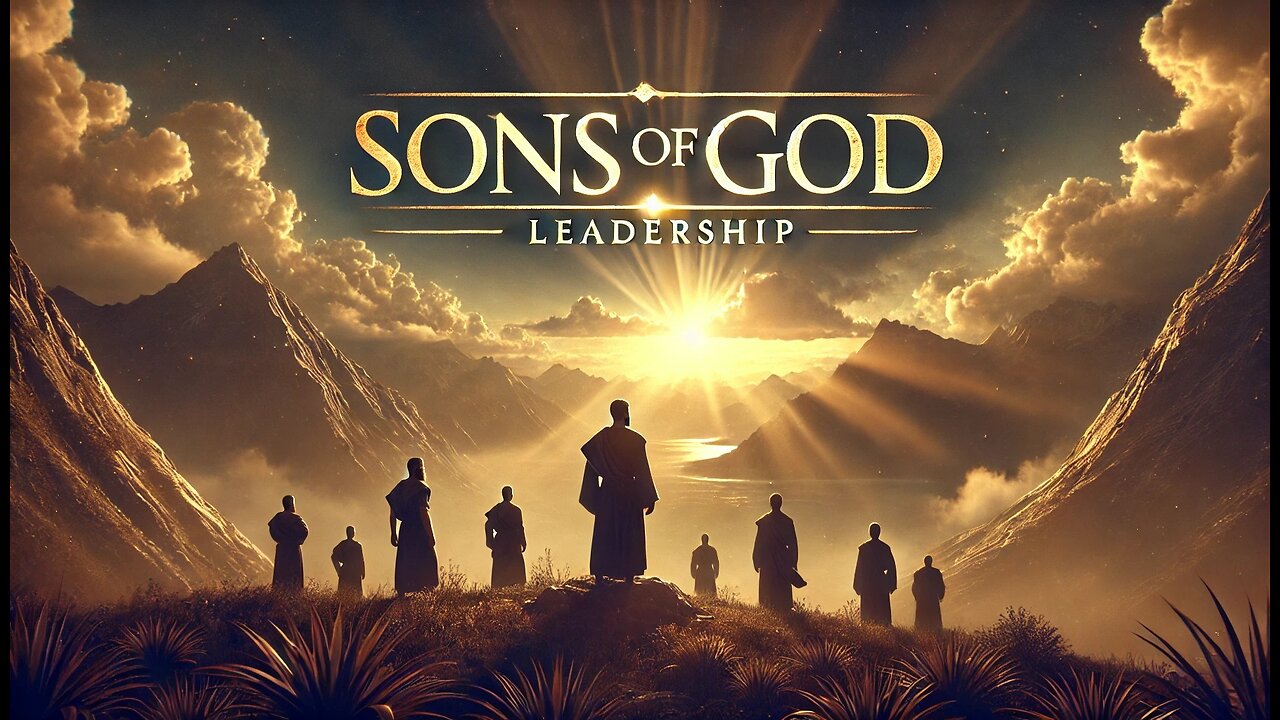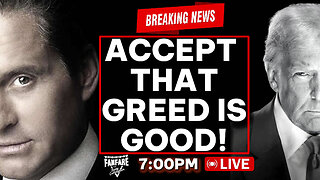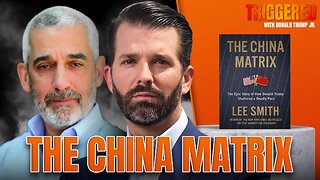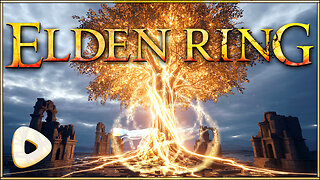Premium Only Content

What Do the Sons of God Teach of Leadership?
“Sons of God” is not merely a title of divine favor—it’s a trajectory of transformation. The biblical narrative, when read through the lens of leadership, tells the story of how human beings grow into the capacity for true governance—not by seizing control, but by aligning with deeper moral truth. Leadership begins with figures like Abraham, where authority is a covenantal gift, bestowed from above and sustained by faith. As the story unfolds, leaders like Joseph embody the next step: integrity under trial, where moral authority is not granted, but revealed through tested character.
With Moses, authority takes on a new form—mediated through law, structured and shared, yet still rooted in divine revelation. But as the Judges reveal, when that structure fails to take root in the hearts of the people, society collapses into cycles of crisis, requiring charismatic leaders to rise temporarily out of necessity. This unstable model gives way to kingship, a threefold experiment in institutional authority that evolves from external appointment (Saul), to relational legitimacy (David), to wisdom-based governance (Solomon). Yet each model ultimately falls short when internal coherence is lost.
Enter the prophets—leaders without thrones—whose authority is conscience itself. They speak truth to power not from outside the tradition, but from its deepest center. Their voices shake kingdoms, but cannot build them alone. It is only with Ezra and Nehemiah that leadership becomes shared and participatory, grounded in renewed communal commitment to the law—not imposed from above, but embraced from within. Here, the people begin to own the covenant, and governance takes a collective, inclusive shape.
Jesus, the true Son of God, fulfills this entire arc. His authority is harmonic—the complete alignment of heart, action, and divine will. He doesn’t rule by command, but by embodied truth. He teaches that leadership is not about control, but coherence; not about law alone, but love lived. His kingdom is not of this world because it is within—a moral reality that transcends all external forms. This is the moment leadership becomes fully internalized, and every follower is invited to become a reflection of divine authority, lived in service, humility, and transformation.
The Church continues this pattern: distributed authority guided by the Spirit, sustained by truth and community. Here, every member becomes a participant in discernment, and leadership is shared, dialogical, and rooted in love. Finally, Revelation reveals the vindication of this entire journey—when faithful witness triumphs over domination, and the Lamb who was slain reigns through sacrificial love. The new city has no temple, no king, no law—because all is fulfilled. Moral authority shines from within. This is the end of coercive power, and the fragile, radiant beginning of self-governed sons and daughters of God.
-
 14:44
14:44
Sponsored By Jesus Podcast
1 day agoYou Can't Serve God & MONEY | Is Money the Root of All Evil?
11.1K15 -
 2:47:28
2:47:28
Barry Cunningham
9 hours agoYOU'VE BEEN MISINFORMED! GREED IS ACTUALLY GOOD! ESPECIALLY NOW! (AND MORE NEWS)
80.8K34 -

SpartakusLIVE
9 hours agoSNIPING in Battlefield 6 - REDSEC || Monday MOTIVATION to CONQUER the Week
44.4K4 -
 49:25
49:25
ThisIsDeLaCruz
5 hours ago $5.80 earnedBack Stage Pass with Avenged Sevenfold
40.3K8 -
 6:43:40
6:43:40
GritsGG
10 hours agoWorld Record Win Streak Attempt! #1 Most Wins 3880+!
20.6K2 -
 3:12:05
3:12:05
Tundra Tactical
7 hours ago $12.45 earnedProfessional Gun Nerd Plays Battlefield 6
51.6K5 -
 1:01:12
1:01:12
Donald Trump Jr.
10 hours agoThe China Matrix with Journalist Lee Smith | TRIGGERED Ep.288
142K86 -
 11:56:00
11:56:00
Dr Disrespect
15 hours ago🔴LIVE - DR DISRESPECT - ARC RAIDERS - FULL SEND INTO THE RED
161K18 -
 5:17:51
5:17:51
JdaDelete
6 hours ago $0.43 earnedFinally playing Eldin Ring | First Playthrough Episode 2
12.1K4 -
 1:02:08
1:02:08
BonginoReport
8 hours agoNicki Minaj Speaks Out Against Christian Persecution - Nightly Scroll w/ Hayley Caronia (Ep.169)
67.6K54